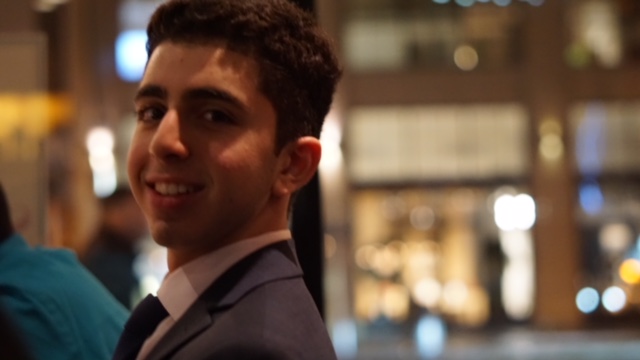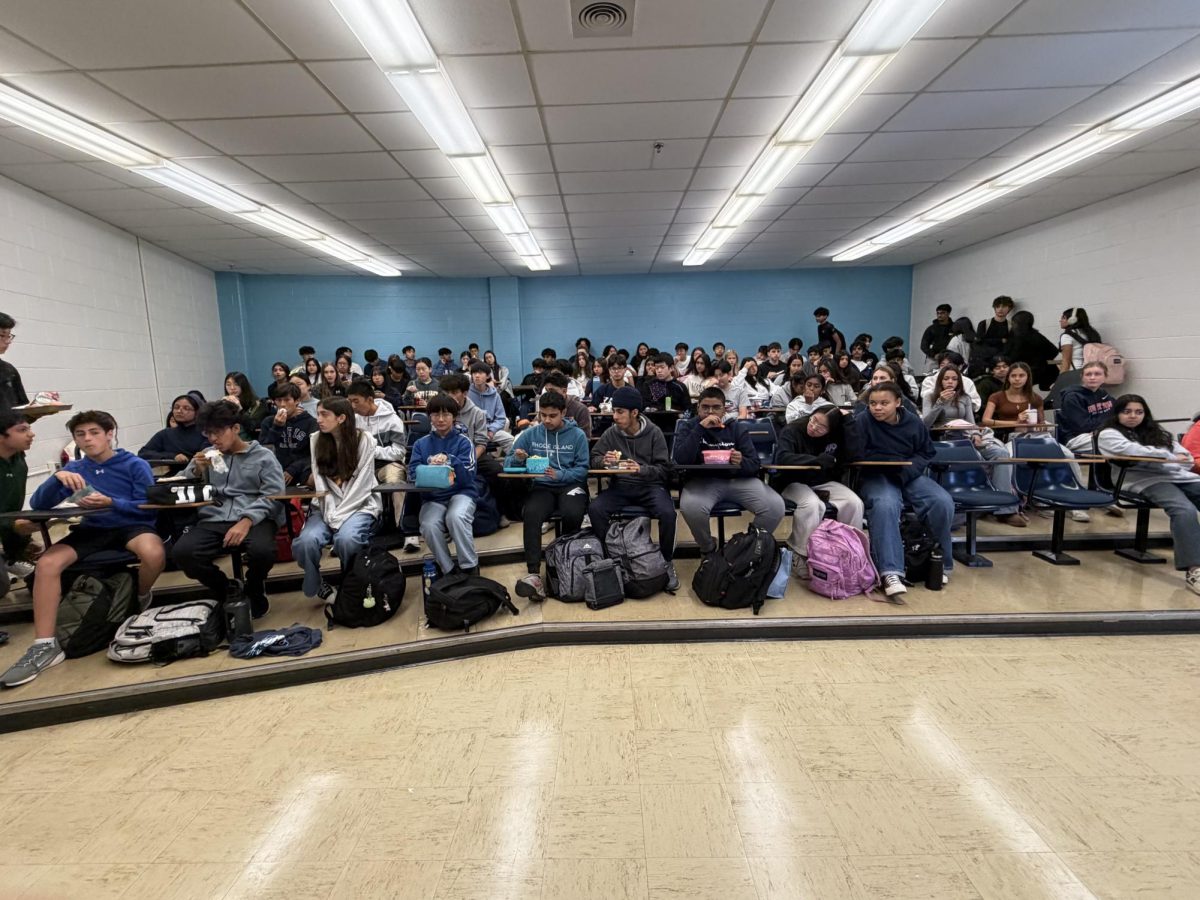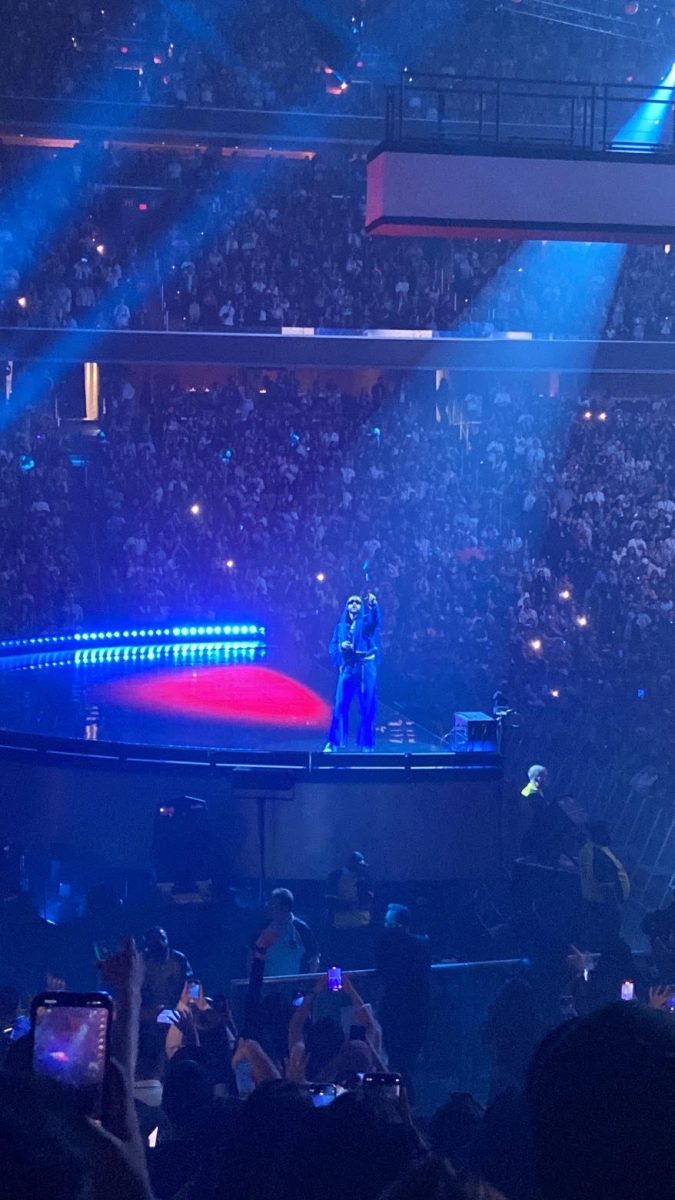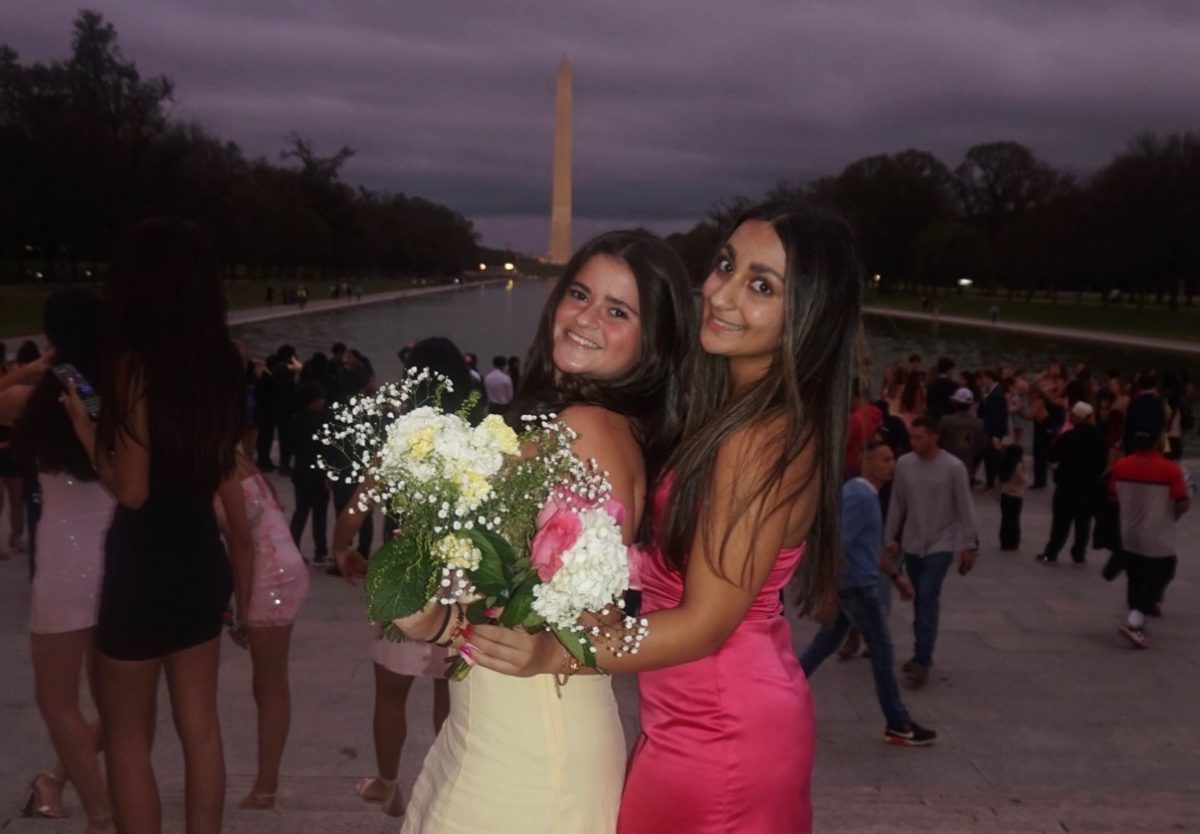The Model United Nations (MUN) team is having an award-winning season, with over 75 percent of members capturing coveted honors in the Ivy League Model United Nations Conference held at the University of Pennsylvania on Jan. 25-28.
They also took home the team delegation award at the North American Invitational Model United Nations hosted in D.C. by Georgetown University’s International Relations Association on Feb. 15-18. Common Sense caught up with co-presidents seniors Hamzah Shah and Shazia Ahmed, as well as a few other members, to learn about what it takes to excel in the world of MUN.
Seniors Hamzah Shah and Shazia Ahmed, co-presidents
Common Sense: What do you think you’ve done together as co-presidents to help members win awards? HS: The first thing we did this year was run a conference hosted here. Running that conference was a really good opportunity for them to put into practice what we were teaching at meetings. A lot of what we do is running debates at meetings, giving feedback on speeches, leadership, diplomacy and working together. The conference was a way for them to apply what we had taught them.
SA: We had a lot of new members join this year from all different grade levels and we felt the one conference we had put up wasn’t enough, so for the first time we rented out a community center and we ran our own simulation of what a MUN debate would be like for these first year [participants]. We also increased the number of local conferences we went to before we went to collegiates.
CS: What are your hopes for the club next year, and do you have any advice for future MUN presidents? SA: Our hope for the next year is that our trajectory will continue to go up. We set a really solid foundation and our club is getting better with each year. I hope we still continue our win streaks and our membership. I hope they’ll continue to be successful and make WHS MUN successful. HS: I would just add that going through a presidency, you pour in a lot of time into running everything. My advice for future presidents would be: although it’s a lot of work, it’s really rewarding in the end, especially to come out with something to show for [it], like a delegation award. If you want to be president, you should be doing this for the growth of the club in the future and looking at what you can be building up for future years. My hope for next year would be to continue to win another delegation award. I know our team is prepared to do that, and ready to do that.
Sophomore Arnav Patra, junior officer
CS: How did it feel to win “Best Delegate?”
AP: It felt amazing. It’s my first ever collegiate award, and for it to be Best Delegate. It was just a great experience and kind of surprising, but I’m happy with the result.
CS: What ways have you helped the club improve as a junior officer?
AP: I work mainly behind the scenes like helping organize logistics stuff. I’ve been able to provide my input. I’m the only sophomore who’s doing that, so I provide a voice, and I feel that’s very important.
Iman Shumburo, sophomore
CS: How did it feel to win Verbal Commendation?
IS: I was really surprised, but it felt really good because a lot of hard work went in to it. It was a huge sigh of relief to be recognized for something you’ve worked so hard for.
CS: What did you do that helped you win that award?
IS: A lot of it was obviously knowing what you were talking about, but having such a great partner as [junior] Megan See, having a good dynamic really helped us succeed. If I didn’t have her, I don’t think it would’ve been the same.
Eric Yao, junior, vice president
CS: What does it take to win “Outstanding Delegate?”
EY: Winning Outstanding takes stamina, hard work and preparation both before and after the conference begins, an unwavering mentality of “we can win this,” and maybe a bit of luck. Confidence is necessary because without trust in your actions you leave yourself prone to failure.
CS: How are you going to ensure that the MUN program here stays strong next year?
EY: The most important thing is member retention. Countless clubs lose members as the year goes on because of apathy. Personally, I hope we can combat this apathy by increasing the number of activities we do to ensure that members who aren’t chosen for bigger conferences, or are given conferences held later in the year, have the chance to practice and compete in other activities, and keep their interest alive.
Abbey Damonte, freshman
CS: What is your favorite part of MUN?
AD: My favorite part is learning about all the different topics and getting to see the different aspects of the different nations I learn about every week.
CS: How has being with an award-winning team and experienced members helped you develop MUN skills?
AD: They’ve always been able to tell me how to deal with different situations and different people I come across in committee, which helps me learn and do better.
Rachel Wei
Editor-in-Chief








